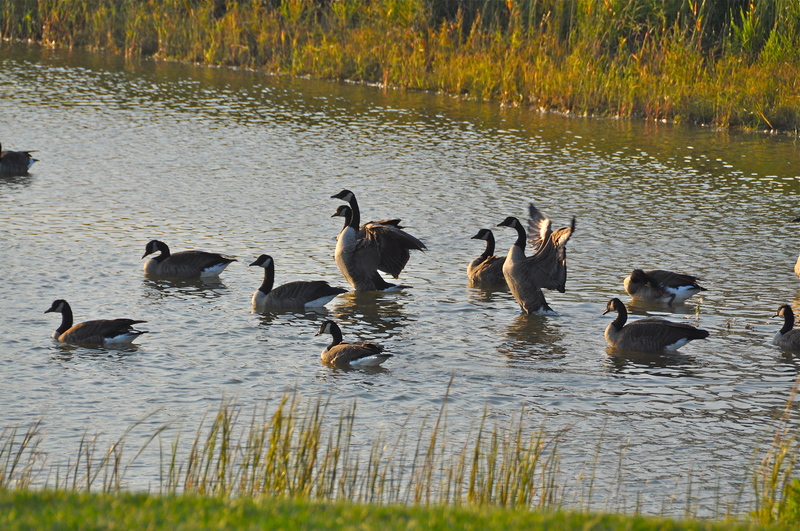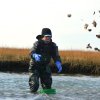When Pot-Nets resident Annette Peary heard gunshots in September, she knew it was resident Canada goose hunting season.
"The guns woke me up, and I knew exactly what was going on," she said.
Canada goose hunting season runs from Sept. 1 to 24 and is the latest tool municipalities, neighborhoods and developments have to thin growing numbers of geese that set up homes in the region.
Geese born on a property will spend their life there, said Beth Brittingham, manager of the Peninsula Homeowner's Association.
For the Peninsula, that's meant 500 geese have taken up residency in the neighborhoods' open spaces.
"Around this time last year, we began getting complaints from residents about geese droppings," Brittingham said. "They're fouling the streets. People are stepping in it and tracking it into their homes, and it's fouling the ponds."
Peninsula has tried other methods – using dogs and firing blanks to chase away the birds – but the number of geese remained.
Brittingham estimated, hunters last month thinned out the flock by about 100 birds.
Milton-based Envirotech Environmental Consulting Inc. coordinated this year's resident geese hunts for the Peninsula as part of a goose control program.
"If there are large, large numbers of Canada geese in a population roosting and actively feeding and reproducing on a specific water body year round, that can be taxing to the water quality and the overall dynamic of the eco-system, " said Todd A. Frichtman, president of Envirotech. "There is profound economic impact that can come from our resident goose population if left unchecked because they're not supposed to be there."
Geese shot in the September hunt were kept as food by the hunters, saved and mounted by a taxidermist or donated to an area food bank, he said.
The federal government for decades has strictly regulated Canada goose hunting. A moratorium on hunting them was lifted about 10 years ago when the populations began to increase, said Agent Dan Collins of the federal Fish and Wildlife agency. The federal government initially allowed a one-bird-per-day take during the migratory Canada goose hunting season, but has since expanded it to two birds a day. The current migratory Canada goose season is held Nov. 21 to 26 and again Dec. 15 to Jan. 28. There also are seasons for snow geese.
The resident goose hunting season was established after more and more states lobbied the federal government to take action against the thousands of resident geese that were damaging many areas, said state Fish and Wildlife Capt. Robert Legates.
"Their system is not designed to protect the hundreds of thousands of geese that have decided to stay here," Legates said.
During the resident goose season, hunters can take up to a 15 birds per day. However, Legates noted, total numbers are gathered at the end of the year.
"The entire hunting season is an honor system," he said. "We have thousands of people hunting."
The Peninsula currently is looking into acquiring a permit that would allow them to hold Canada geese hunts outside the hunting season, Brittingham said.
The community also has applied to the state for a permit to addle eggs - an effective but time-consuming way to curb the goose population, she said.
"We're not trying to abate the geese entirely," Brittingham said. "All we're trying to do is control the population."
Melissa Steele is a staff writer covering the state Legislature, government and police. Her newspaper career spans more than 30 years and includes working for the Delaware State News, Burlington County Times, The News Journal, Dover Post and Milford Beacon before coming to the Cape Gazette in 2012. Her work has received numerous awards, most notably a Pulitzer Prize-adjudicated investigative piece, and a runner-up for the MDDC James S. Keat Freedom of Information Award.























































